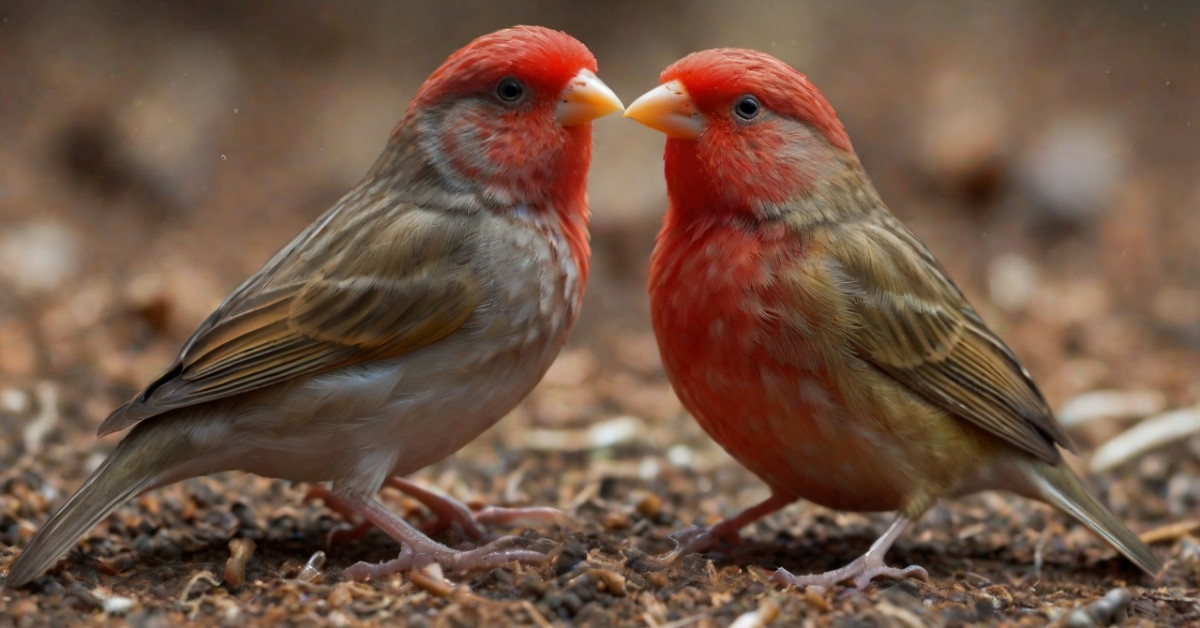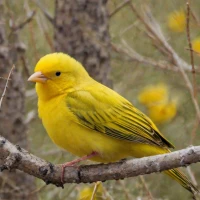My First Encounter with Red Canaries
I remember the first time I laid eyes on a red canary—it was a hazy autumn afternoon. My friend Andrea had invited me over to her place, enthusiastically waving me in. As soon as I entered, there was this burst of color fluttering around in a golden cage by the window. The canary, with its vibrant red feathers, immediately caught my attention. We spent that entire afternoon chatting about pets, life, work, and of course, red canaries. Let me tell you, it left a lasting impression on me.😊
The Average Lifespan of Red Canaries
Red canaries, unlike their yellow and green cousins, have their own unique traits and quirks. On average, these lovely creatures live about 10-15 years with proper care. Yes, it’s a relatively short lifespan compared to other pets, but those years are filled with melody and joy. In fact, a fun little fact—did you know canaries were once used in coal mines to detect toxic gases? Such brave little souls they were!
Factors Influencing Their Lifespan
Pet Birds are not all born equal. Sure, genetics plays a role, but there are myriad factors that impact how long your feathery friend will stick around:
- Diet: A balanced diet is crucial. Just like us, they need vitamins and minerals.
- Environment: Regular exposure to fresh air and sunlight makes a difference.
- Exercise: Yes, they need it too! A spacious cage to flit around should be non-negotiable.
I remember my neighbor Sarah’s canary, Pip. She’d let him out to fly around the room every evening, and boy was he a happy bird!
The Aging Process in Red Canaries
Aging in these little feathered friends is a nuanced process. Much like how we age—wrinkles, slower movements, perhaps a bit more wisdom (or so I like to think)?—canaries show signs of aging as well.
Signs of Aging
- Feather Changes: Their feathers might lose some of their vibrant hues, becoming a tad dull.
- Activity Levels: They could be less enthusiastic about flying around.
- Health Issues: Arthritis is not unheard of among older canaries.
Health Challenges: The Vet’s Perspective
Birds, including red canaries, aren’t immune to illnesses. By keeping an eye on their behavior and taking prompt action, many issues can be thwarted early on. A memorable bit of advice from my mentor Dr. Roberts: always, always listen to your bird’s song. Changes in chirping patterns could be early signs of health issues.
Common Health Issues
- Respiratory Problems: Things like labored breathing can be a red flag.
- Digestive Issues: Look out for changes in droppings.
- Parasites: Mites can be a nasty surprise.
Tips to Extend Their Lifespan
Having walked through the corridors of numerous vet clinics, trust me when I say prevention is worth an ounce of cure.
- Right Diet: Fresh fruit, vegetables, specially formulated bird seeds.
- Clean Environment: Regular cage cleaning prevents infections.
- Quality Time: They need social interaction. You could even have two canaries—keeping each other company!
Personal Reflections: My Journey with Bella
In closing, I’d love to share a personal story about Bella, my very own red canary. She came into my life through a rescue shelter, looking all frail and timid. But with time, patience, and care, she transformed into a lively, chirpy bird who would greet me every morning. Bella taught me so much about resilience and the importance of companionship. If you ever get the chance, adopting a rescue bird can be incredibly rewarding.
So, whether you’re a newbie bird owner or a seasoned bird enthusiast, I hope you find your own journey with red canaries as fulfilling and joyful as mine. Thank you for reading this! Have an amazing day ahead.✨










